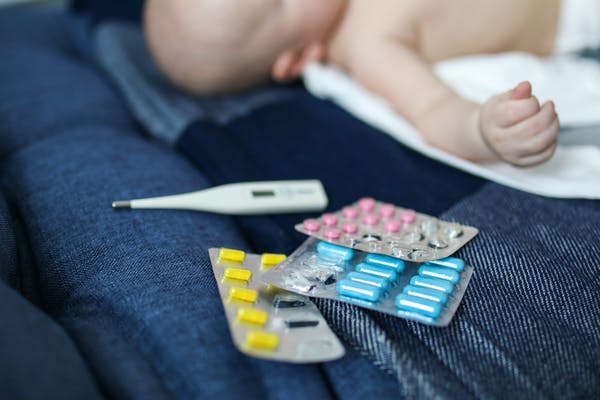Latest News
The Symptoms, Causes, and Risk Factors for Endometriosis

Endometriosis is a painful condition whereby tissue similar to the tissue lining the uterus grows outside the uterus. Usually, the endometrial-like tissue grows on other reproductive parts, including your fallopian tubes, ovaries, and the tissue lining your pelvis. Although rare, endometrial-like tissue can also be found beyond the pelvic organs. As endometrial tissue thickens, breaks down, and bleeds with each menstrual cycle, so does the endometrial-like tissue. Endometriosis causes severe pain during menstrual bleeding; patients with this condition describe menstrual pain that is far worse than usual. The good news is that your provider at Capital Women’s Care offers different effective treatments for endometriosis.
Symptoms of endometriosis
Endometriosis primarily causes pelvic pain associated with menstrual periods. Although most women cramp during their menstrual periods, those with endometriosis describe the pain to be severe; the pain may also increase over time. Other signs and symptoms of endometriosis include:
· Heavy menstrual periods or intermenstrual bleeding (bleeding between periods)
· Pain during or after sexual intercourse
· Dysmenorrhea. Periods tend to be painful; you may experience pelvic pain and cramping before your periods, extending several days into a menstrual period. Lower back and abdominal pain are also common with endometriosis.
· Painful bowel movements or urination during a menstrual period
· Infertility. Some women who seek infertility treatment are diagnosed with endometriosis.
· Diarrhea, fatigue, constipation, bloating, or nausea during menstrual periods.
The severity of your pain may not be relative to the extent of your condition; mild endometriosis could cause severe pain, or you could have advanced endometriosis with little or no discomfort.
Endometriosis can often be mistaken for conditions that cause pelvic pain, such as ovarian cysts or pelvic inflammatory disease. Irritable bowel syndrome often accompanies endometriosis; it causes constipation, diarrhea, and abdominal pain, complicating the diagnosis.
What causes endometriosis?
The cause of endometriosis remains unclear, but some possible theories include retrograde menstruation; this occurs when menstrual blood containing endometrial cells flows back into the pelvic cavity instead of exiting the body. As a result, the endometrial cells stick to the pelvic walls and organs, where they grow, thicken and bleed with each menstrual cycle. The transformation of peritoneal cells into endometrial-like cells may also cause endometriosis; hormone and immune factors transform peritoneal cells into endometrial-like cells.
Sometimes your genes could also play a role; for example, you are more likely to get endometriosis if a close family member such as your sister or mum has the condition. Specialists say that it tends to worsen from one generation to the other. If endometrial cells attach to a surgical incision, you may also get endometriosis after surgical procedures such as C-sections and hysterectomies. Different theories explaining the cause of endometriosis include endometrial cell transport and immune system disorders.
Some factors increase your risk of endometriosis; for example, women who have never given birth are more likely to develop endometriosis. A short menstrual cycle, low body mass index, and starting your periods at an early age also increase your risk of endometriosis.
Consult your healthcare provider at Capital Women’s Care for further questions about endometriosis.
Umar Nisar was born and raised in the busy city of Abbottabad. As a journalist, Umar Nisar has contributed to many online publications including PAK Today and the Huffing Post. In regards to academics, Umar Nisar earned a degree in business from the Abbottabad UST, Havelian. Umar Nisar follows the money and covers all aspects of emerging tech here at The Hear Up.
Thanks










